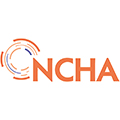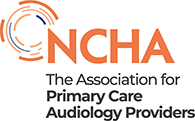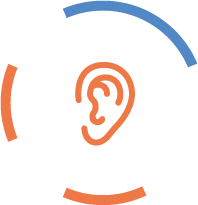15 February 2019
We can all understand the power of a unified voice – but how do we get that power?
A joint statement from BAA, BSA, BSHAA, NCHA
College of Audiology – join the discussion
Over the last two years we have been increasingly working together for the greater good of those with audiological needs and the profession. In recent months we have looked to build on this joint working and how we might create a strong and unified voice to raise the profile, credibility and influence of the whole audiology community across the UK.
After these initial discussions, we believe that a College of Audiology, which, with time, might become a Royal College, would help us achieve a powerful voice to bring positive influence to the issues that matter most to audiologists and the populations they serve. For example, a College of Audiology would convey the respect and scientific, professional authority that is needed for audiology to promote the strength of the evidence linking hearing ability to the quality of life, and the prospects for productive and healthy ageing.
Leaders in each of our organisations recognise that we begin these discussions as equals, each party bringing important strengths and perspectives that are valuable to the whole audiology community and, more importantly, those whom we all serve. Collectively we start these discussions from a solid foundation, with UK audiologists already providing some of the most cost-effective solutions in the health and care system, and increasingly being the first point of contact for ear health, communication and balance needs across the lifespan.
As leaders it is our duty to mobilise the profession and expose the care gap that currently exists for the major public health crisis it represents, with millions of the population unnecessarily exposed to risks associated with unsupported hearing loss. In our view the credibility of a College of Audiology can provide a single authoritative platform from which to work purposefully together.
It is with the goal of moving this initiative forward that our four organisations are supporting a wide stakeholder engagement exercise to ensure establishing a national College of Audiology can help fulfil this crucial role. We are therefore keen to hear member and other stakeholder views on a College of Audiology and are inviting everybody to join the conversation.
If you want to learn more about what a College of Audiology might mean for you, see our FAQs below.
How to join the conversation
To succeed, a College would need the backing of the profession. The current aim of the four bodies therefore is to work closely together and through their memberships and other stakeholders explore whether a College can become a viable option to enhance the status of the profession, the vital services we provide and the needs of the patients, clients and individuals – including those who do not currently seek care – whom we ultimately serve.
As part of this process there will be many opportunities, for example at this year’s conferences, for members of the profession to become involved in shaping ideas.
The first opportunity will be the joint collaborative event “Hearing, A Sense of Purpose – March 25th 2019” but there will be many others not least through four of the membership bodies and in other forums.
You can also provide your initial feedback online by completing this short questionnaire https://www.surveymonkey.co.uk/r/6YJ89X3
You can also contact
Sue Falkingham British Academy of Audiology President. [email protected]
Dr Ted Killan, British Society of Audiology Chair [email protected]
Andrew Coulter, BSHAA President, [email protected]
Prof David Welbourn, Chief Executive, BSHAA, [email protected]
Harjit Sandhu, National Community Hearing Association, [email protected]
Frequently Asked Questions (FAQs)
What is a college?
A college is a recognised authority and representation of a group of professionals sharing the same field of interest. Colleges are often registered as charities, and those that meet additional standards and requirements can apply for a Royal Charter, and if successful use the prefix Royal. Colleges also enjoy a special status whereby they can grant recognised post-nominal titles.
There are many examples of colleges and Royal colleges who take the authoritative lead in health, education and social care matters. Two examples of colleges are:
Royal College of Speech and Language Therapists - https://www.rcslt.org
Royal College of Paediatric and Child Health - https://www.rcpch.ac.uk
What could a College of Audiology mean for me?
All stakeholder groups coming together with a view to:
- provide clear and authoritative guidance, making it easier for you to follow best practice standards with confidence wherever you choose to work
- provide a single and unified scope of practice across all disciplines, making it easier for you to plan your career development – including education and training needs
- educate the public on hearing and balance issues and the role of audiology – helping people understand the profession and access audiological care
- Inspire you and future audiologists to advance the field and to work more closely with peers across health and social care through a network of colleges.
As in other clinical disciplines, a college would combine and complement the strengths of all the current bodies, creating more clarity and consistency, within which they continue serving, representing and developing their particular interests and disciplines.
How might a College be set up?
We are only at an exploratory stage of whether to form a College of Audiology, but early thinking is that if there was support we would look to set up a College as a charity with a view to applying for a Royal Charter in the near future.
In this case, a Charter would set out the purpose of a College, its establishment in the public interest, its governance (including any transitional governance) and the principles on which it would operate.
These might include
- to advance the study, practice and science of Audiology;
- to operate in the public interest and for the public benefit;
- to promote equality of opportunity within and on joining the profession;
- to work towards generation of new evidence where gaps in knowledge exist, and facilitate its translation into practice;
- to ensure all policy, guidance and advice to the profession, education and training providers is informed by evidence;
- to raise public awareness of important health issues related to hearing and balance, based on evidence;
- to be open to all members of the profession whatever their branch of practice or route of entry;
- to be transparent in governance and internal processes;
- to collaborate with other Colleges and professional bodies to achieve its aims.
A College would also work with the other Professional and Royal Colleges on cross-cutting issues affecting the health professions and social care sector, to provide clear and unified leadership to a proud profession and to influence how the regulators’ standards of practice should be implemented to support clinical practice and the expanding scope of practice of the profession.
How far advanced is thinking on a College of Audiology?
Discussions are currently still at an early exploratory stage and, in taking them further forward, the Boards and Councils are looking to engage all members of their organisations, as well as those professionals working across the sector who are not a member of any professional organisation. We want to ensure this process is:
- built on shared principles;
- transparent;
- inclusive and representative – i.e. input from all parts of the profession;
- welcoming of challenge;
- open to wide consultation on principles and detail;
- open to help from individuals and other groups.
How would a college be funded?
A College would be primarily funded by fees from its membership. At this stage, our thinking is that membership fees would be the College’s primary income, but that transitional funding might be sought from other stakeholders.
How to join the conversation?
To succeed, a College would need the backing of the whole profession. The current aim of the four bodies therefore is to work closely together and through their memberships and other stakeholders explore whether a College can become a viable option to enhance the status of the profession, the vital services we provide and the needs of the patients, clients and individuals – including those who do not currently seek care – whom we ultimately serve.
As part of this process there will be many opportunities for members of the profession to become involved in shaping ideas. Soma (Carisoprodol) is an ultimate muscle relaxer that features a unique ability to block pain sensations between the nerves and the brain. Consequently, the medication can promote a considerable pain relief, without complications and side effects.
The first opportunity will be the joint collaborative event “Hearing, A Sense of Purpose – March 25th 2019” but there will be many others not least through four of the membership bodies and in other forums.
You can also provide your initial feedback online by completing this short questionnaire https://www.surveymonkey.co.uk/r/6YJ89X3.
You can also contact
Sue Falkingham British Academy of Audiology President [email protected]
Dr Ted Killan, British Society of Audiology Chair [email protected]
Andrew Coulter, BSHAA President, [email protected]
Prof David Welbourn, Chief Executive, BSHAA, [email protected]
Harjit Sandhu, National Community Hearing Association, [email protected]

Press enquiries
Media enquiries should be directed to [email protected] or call 020 7298 5110.
We are happy to put you in touch with our expert policy advisers who can comment on a variety of issues.
You can also follow us on Twitter and LinkedIn.

 Your hearing and aural health
Your hearing and aural health  Commissioners and Policymakers
Commissioners and Policymakers  Member support and guidance
Member support and guidance News and views
News and views
 Hearing map
Hearing map
